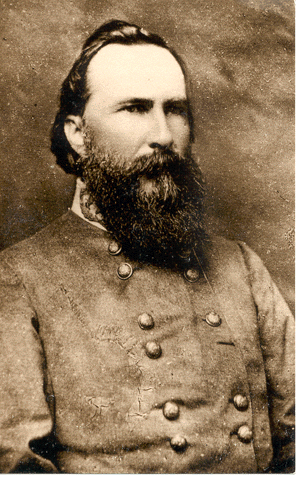What a Long, Strange Trip...
The Second War of Northern Aggression or the War for the Pacific 1884-1887
When war came that June, all the optimism of the South was well rewarded, unlike the times of false hope during the first war. After hard fighting near Philadelphia, the Army of Northern Virginia push the smaller Union forces aside and entered New York in early August. Beauregard wandered through Kentucky, Ohio, Illinois, and Indiana without much retaliation since the Federals had concentrated troops in the West and in the North, "but not the Middle" as Horace Greely put it. In the Western campaign, Bragg, confident with the new title and confidence place in him, pushed ahead despite the constant bushwacking and opposition of the Union's best general of the war, Arthur MacArthur. Wherever Bragg marched, MacArthur was at his destination to oppose him; and when he wasn't, that was not a good thing either. That meant that MacArthur was behind Bragg trying to cut his ling of communication and supply. For months, this cat and mouse game played out in the Southwest while Bearegard toured the Old Northwest and Longstreet enjoyed his first Christmas in New England.

But, with the new year came the joyous news from Bragg, "I have seen the Pacific and dipped my hand in its waters." Late in 84, he had pushed MacArthur into Northern Arizona, cutting him off from reenforcement (or so he thought) or escape. MacArthur knew there was only one way out and that was California. Bragg willingly followed, enjoying the severed "whoopings" he was giving to Union armies. Soon San Diego was occupied, then the San Jancinq Valley, then San Fransico, and then the capital at Sacremento. "This triumphant feet of arms and such marches are rare in our times. Such glorious actions can only be compared to the march of Hannibal from Spain to the very gate of Rome," exclaimed the Richmond Times. "That gold is ours," was the Secretary of the Treasury's only comment.
MacArthur - Bragg's Royal Pain in the a$$
Yet, soon, this irrational exuberence was to be calmed by military reality. Bragg had streched his line of communication and supply to far and he had grabbed to much land too fast. Despite its modern and well trained military, the Confederacy still suffered sever manpower problems (unlike the North which, while not achieve the army size of the eariler war, was able to mobilize more troops in a short period of time). So for the rest of the war, Bragg was always on the march, first in California he was force of deal with regular guerrilla action by loyalists, then dealing with a Union counterinvasion of Southern California which eventually numbered 50,000. Many battles were fought, 2 or 3 at San Diego, Joshua Tree, Red Bluffs, Monterry, with mixed reasult. Still, the numbers of Federal troops in the state meant one thing to Bragg, retreat. This indeed was a much better option than destruction. So, since the southern route was closed, Bragg marched his men over the Sierra Neveda in the autumn of 1886 and rush through the Neveda and Arizona territories to get back to New Mexico. Despite this active sideshow, the war had been clear Southern victory (Longstreet had taken Boston, for goodness sake*), but the Union government on the run would not negociate until the Spring of 1887. They finally agreed to hand over most of the New Mexico territory, recognizing Confederate claims to it.* Peace against descened despite Braxton Bragg's Pacific Comedy of Errors.
*The Confederate navy also proved its worth by sucessfully blockading the entire US fleet in its various ports of refuge during the war. This was in no small part due to the advanced craft of the fleet such as 'Lee' class ironclads and the 'George Washington' class battleships.
*I have to admit that I arranged this peace treaty by using the Neville cheat since is wasn't that high of the war score percent and since I knew I wasn't going to get any type of peace offer from the AI unless I conquered all US, which as Bragg proved, would be hard at the least.
I hope you can enjoy my current and future aar's in the time being.











